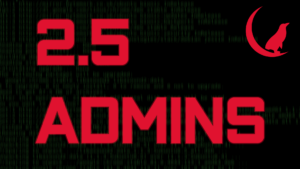
 2.5 Admins
2.5 Admins 2.5 Admins 209: Faulty Defaults
Aug 22, 2024
The discussion kicks off with vulnerabilities in outdated SSH implementations, sparking debate about secure protocols. A staggering incident reveals how a weak RSA key enabled control of a massive virtual power plant. The hosts delve into the intricacies of file synchronization tools and advocate for strong encryption practices. They also explore self-hosted photo management solutions, emphasizing the importance of backups and data control in the cloud. Tune in for insights on enhancing security and navigating modern tech challenges!
Chapters
Transcript
Episode notes
1 2 3 4 5 6
Intro
00:00 • 6min
Transitioning from Configurable to Versioned Security Protocols
05:36 • 5min
Vulnerabilities in Unmanaged Devices and Weak Cryptography
10:42 • 5min
Developer Responsibilities in Cryptography
15:54 • 7min
Exploring Self-Hosted Photo Management Solutions and the Importance of Backups
23:22 • 3min
Navigating Cloud Backups: Encryption and Security Considerations
25:59 • 4min

